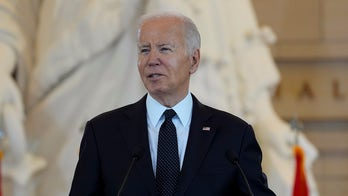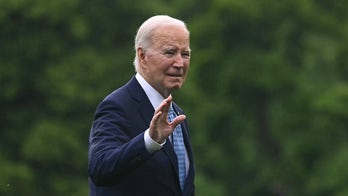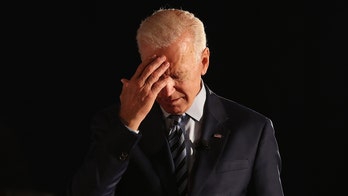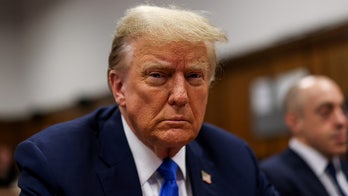WASHINGTON -- As several U.S. lawmakers push the Obama administration to craft plans for a no-fly zone around Libya, President Obama's chief of staff suggested Sunday those calling for U.S. military intervention don't know what they're talking about.
Pressed on U.S. contingency planning in light of a growing armed rebellion against Libyan strongman Muammar al-Qaddafi, White House Chief of Staff Bill Daley would neither commit to a no-fly zone nor describe Libya as a vital U.S. security interest.
"Lots of people throw around phrases of 'no-fly zone' and they talk about it as though it's just a game, a video game or something. Some people who throw that line out have no idea what they're talking about," Daley said, without indicating whom he meant.
U.S. defense officials argue that setting up a no-fly zone would mean removing Libya's air defenses, a move tantamount to war. On Wednesday, U.S. Defense Secretary Robert Gates told a Senate panel that the overall military effort of a no-fly zone would require more airplanes than are available from a single American aircraft carrier, though the Pentagon could arrange it if President Obama ordered it.
"Bob Gates understands the difficulty of going to war," Daley said on NBC's "Meet the Press." "This is a man who spent almost his entire life working for the government. He knows the difficulty of war and the challenges as does (Joint Chiefs of Staff Chairman) Admiral (Mike) Mullen. So when people comment on military action most of them have no idea what they're talking about."
But on separate programs, two senators with longtime military and foreign affairs credentials said it's time for the U.S. to make a move and not sit back as Qaddafi's loyalist forces use helicopters and ground fire to stop rebels seeking to overthrow his dictatorship.
Sen. John Kerry, D-Mass., chairman of the Senate Foreign Relations Committee, said the U.S., in conjunction with its allies, could put into place all the trappings of a no-fly zone and then wait to see whether Qaddafi tries to massacre his people or the global community decides it needs to intervene.
"The last thing we want to think about is any kind of military intervention. And I don't consider the fly-zone stepping over that line. We don't want troops on the ground," Kerry said.
But, he added, "One could crater the airports and the runways and leave them incapable of using them for a period of time. I don't think this is going to be a long-term kind of thing, frankly. That's just my judgment. ... It's not a very big air force. We're not talking about, you know, this gargantuan kind of force that we face."
Sen. John McCain, R-Ariz., ranking Republican on the Senate Armed Services Committee, agreed that sending in ground troops would be an inappropriate display by the U.S., but implementing a no-fly zone would not be difficult because Libya's air defenses "are somewhat antiquated."
Speaking on ABC's "This Week," McCain said it would send a signal to the embattled Qaddafi "that the president is serious when he says we need for Qaddafi to go. And also, it would be encouraging to the resistance, who are certainly outgunned from the air."
Kerry said he believes getting Qaddafi out is a vital national security interest for the U.S. because the ability for the Middle East to have emerging democracies without heavy U.S. interference could cast the War on Terror in a whole new light.
"If these countries do reform and they do give greater voice to their people and there is greater opportunity -- economic opportunity, and people are enfranchised as a result ... that is of enormous consequence to all of us with respect to relationships in the Mideast, to the War on Terror as we have known it, and as it might be defined in the future," Kerry said.
The U.S. is providing humanitarian aid through its military while the U.N. and U.S. imposed an arms embargo on Libya and froze billions in the country's foreign assets. McCain said the U.S. could provide the rebel force with intelligence, training and other assistance to help them form a provisional government in the eastern Libyan city of Benghazi.




